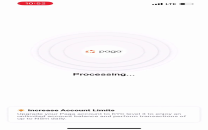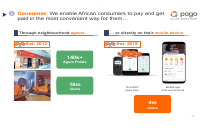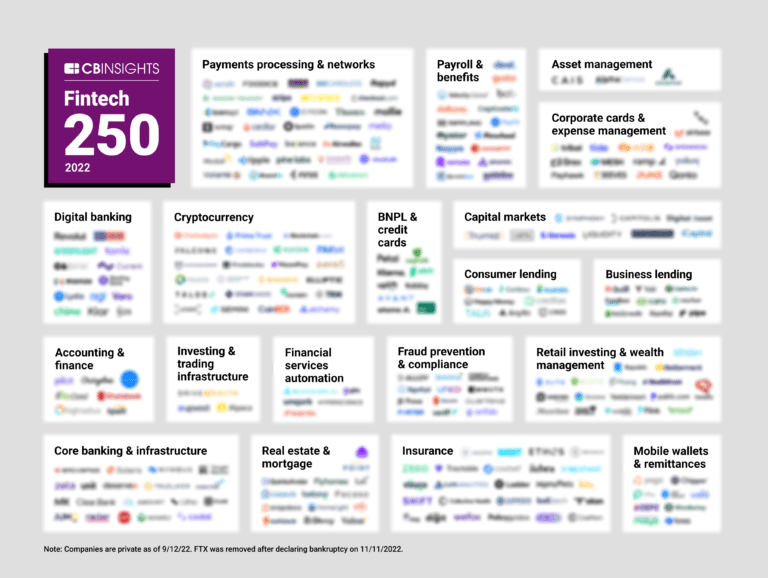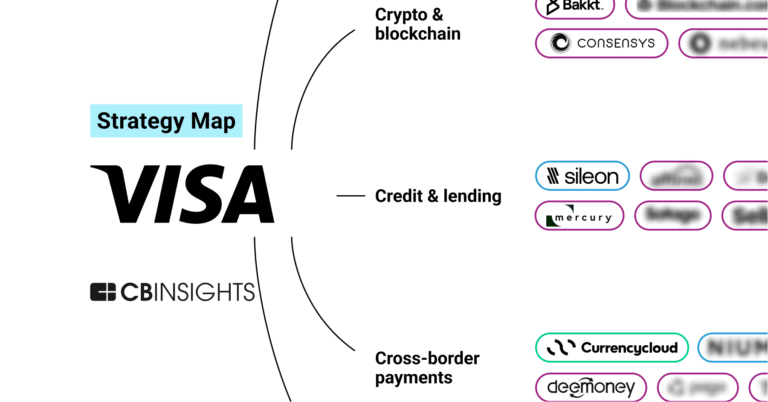
Paga
Founded Year
2009Stage
Series B - III | AliveTotal Raised
$39.2MLast Raised
$5.2M | 3 yrs agoMosaic Score The Mosaic Score is an algorithm that measures the overall financial health and market potential of private companies.
-83 points in the past 30 days
About Paga
Paga is a mobile money company focused on facilitating digital financial transactions. The company offers services that allow users to send and receive money, pay bills, and top-up airtime and data. Paga primarily serves the financial technology sector by simplifying access to financial services for individuals. It was founded in 2009 and is based in Lagos, Nigeria.
Loading...
Paga's Product Videos


Paga's Products & Differentiators
Consumer Mobile App
Similar to Cash App. Mobile App that aggregates all financial accounts and gives consumer one place to view all their balances and transact from one place. Customers can send money, request money, pay bills, buy or send airtime.
Loading...
Research containing Paga
Get data-driven expert analysis from the CB Insights Intelligence Unit.
CB Insights Intelligence Analysts have mentioned Paga in 2 CB Insights research briefs, most recently on Apr 7, 2023.

Oct 4, 2022 report
The Fintech 250: The most promising fintech companies of 2022Expert Collections containing Paga
Expert Collections are analyst-curated lists that highlight the companies you need to know in the most important technology spaces.
Paga is included in 3 Expert Collections, including Fintech 100.
Fintech 100
747 items
250 of the most promising private companies applying a mix of software and technology to transform the financial services industry.
Payments
3,034 items
Companies in this collection provide technology that enables consumers and businesses to pay, collect, automate, and settle transfers of currency, both online and at the physical point-of-sale.
Fintech
13,413 items
Excludes US-based companies
Latest Paga News
Oct 18, 2024
To embed, copy and paste the code into your website or blog: <iframe frameborder="1" height="620" scrolling="auto" src="//www.jdsupra.com/post/contentViewerEmbed.aspx?fid=f8a56c93-9610-4478-ab7d-11bf1f5bf1e5" style="border: 2px solid #ccc; overflow-x:hidden !important; overflow:hidden;" width="100%"></iframe> The California Department of Industrial Relations (“DIR”) recently issued some FAQs regarding how PAGA claims are administered following reform legislation. As you may know, the CA Legislature acted earlier this year to pass legislation to reform PAGA in order to avoid a vote by citizens this November on a ballot measure to repeal the PAGA statute. If you are asking yourself “what is PAGA,” the FAQs explain the statute for you. However, if you are an employer in CA, and have never heard of PAGA before reading this, I encourage you to educate yourself about PAGA and ensure your wage and hour practices are in compliance with CA law. “PAGA” stands for the “Private Attorneys General Act” and the Act allows employees to stand in the shoes of the State by suing their employers on behalf of the State for violations of certain labor laws (mainly wage and hour laws) to recover civil penalties. These civil penalties are separate from and additional to other remedies employees may be entitled to, including damages, for Labor Code violations through a separate non-PAGA lawsuit. Mainly the FAQs address certain aspects of the legislative reform. Below is a summary of just a few: Standing to bring a PAGA lawsuit. PAGA permits employees to bring an action on behalf of themselves and other current and former employees. Prior to June 19, 2024, a current or former employee had standing to bring a PAGA lawsuit if they experienced at least one of the alleged violations of labor laws. The reform legislation changed this and provides that on or after June 19, 2024, the current or former employee who files the PAGA lawsuit must have experienced each of the alleged violations of labor laws. However, there is one exception to this new standing requirement. If the employee is represented by a non-profit legal service organization that litigated PAGA actions in court for at least five years prior to January 1, 2025, the employee has standing to file a PAGA lawsuit if they have experienced at least one alleged violation of labor laws. Increase in the Percentage of Recovered Penalties that Goes to Employees. For PAGA claims filed prior to June 19, 2024, the civil penalties recovered in a PAGA lawsuit were split between the State and the employees 75%/25% respectively. For PAGA claims/notices filed on or after June 19, 2024, the civil penalties are split 65%/35% respectively. Expanded Cure Opportunities for Employers. Before an employee can bring a PAGA lawsuit, the employee must give notice by filling out an online form and submitting a letter to Labor & Workforce Development Agency (LWDA) through the DIR’s PAGA Filing Portal. The LWDA has assigned the responsibility to investigate PAGA claims that raise wage and hour violations to the Labor Commissioner’s Office (LCO). The notice must also be sent to the employer by certified mail. The LCO may decide to investigate any PAGA notice alleging wage and hour violations. If it decides to do so, the LCO will notify the employee within 65 days of the PAGA notice. If no notice to investigate is provided, the employee is authorized to file suit in court. However, during the notice period that the LCO is evaluating whether to investigate a PAGA claim, an employer has the opportunity to cure, or correct, certain violations and avoid PAGA litigation and penalties. For notices filed on or after June 19, 2024, the PAGA reform legislation expanded the types of violations that can be cured. Violations that can be cured now include claims for minimum wage, overtime, meal and rest breaks, necessary expense reimbursement, and all requirements for itemized wage statements, among others. The PAGA reform legislation also put in place new processes for certain types of employer cures: Prior to October 1, 2024, the preexisting cure process continues to apply. Under that process, within 33 days of the PAGA notice, the employer must give written notice by certified mail to the aggrieved employee or representative and by online filing to the LWDA that the alleged violation has been cured, including a description of actions taken. An aggrieved employee may dispute the sufficiency of the cure. The LWDA will review cure disputes and provide written notice of its decision to the aggrieved employee and the employer. The LWDA may give the employer three additional days to complete the cure. If the LWDA determines that the violation is not cured or does not provide timely notice, the aggrieved employee may file a PAGA lawsuit. Effective October 1, 2024, employers of any size may cure violations of Labor Code section 226 (wage statement [aka paystub] violations). If that is the only violation an employer seeks to cure, the same cure process described above for cures prior to October 1, 2024, applies. Effective October 1, 2024, employers that employ fewer than 100 employees may submit to the LWDA proposals to cure violations within 33 days of the PAGA notice. The LWDA may set a conference to evaluate the sufficiency of the proposed cure and the employer must complete the cure within 45 days of the conference. If the LWDA determines that the violation is not cured or does not provide timely notice, the aggrieved employee may file a PAGA lawsuit. If the LWDA determines that the alleged violation has been cured, an aggrieved employee may request a hearing to dispute that finding. The LCO will preside over the cure hearing. An employee may appeal the LCO’s determination that the violation has been cured in Superior Court. An employer may not use the cure provisions more than once in a one-year period for the same violations. Employers cure proposals are treated as confidential settlement proposals and may not be used to prove the validity of any claim or as an admission of liability. All cure notices or proposal and cure disputes must be submitted online through the PAGA Filing Portal. The LWDA’s Position on what an effective cure requires. Correcting the alleged violation requires the following: Compliance with the statute alleged to have been violated Making each aggrieved employee whole If an employee is owed wages, the cure must include: unpaid wages back three years from the notice, seven percent (7%) interest, any liquidated damages required by statute, and reasonable attorney’s fees and costs For wage statement violations, the employer must provide fully compliant wage statements to each aggrieved employee for each pay period of the violation going back three years prior to the PAGA notice For wage statement violations of Labor Code §226(a)(8), employer must provide written notice of the correct information to each aggrieved employee. New “Early Evaluation Conference” Opportunity for Large Employers. Employers who employ at least 100 employees may request an early evaluation conference and stay of a PAGA lawsuit court proceeding when the employer is served with a summons and complaint. This process, which will be overseen by a neutral evaluator, is intended to facilitate early evaluation and resolution of the dispute in court. This process is distinct from the administrative cure process the LWDA administers. Employers are encouraged to work with their employment counsel to audit their wage and hour practices for compliance with CA law. The DIR’s PAGA FAQs can be found here .
Paga Frequently Asked Questions (FAQ)
When was Paga founded?
Paga was founded in 2009.
Where is Paga's headquarters?
Paga's headquarters is located at 176 Herbert Macaulay Road, Yaba, Lagos.
What is Paga's latest funding round?
Paga's latest funding round is Series B - III.
How much did Paga raise?
Paga raised a total of $39.2M.
Who are the investors of Paga?
Investors of Paga include Flourish Ventures, Gaingels, Ping An Cloud Accelerator, Global Innovation Fund, Acumen and 9 more.
Who are Paga's competitors?
Competitors of Paga include Zepz, BitGo, Airwallex, MobiKwik, Lianlian Pay and 7 more.
What products does Paga offer?
Paga's products include Consumer Mobile App and 2 more.
Loading...
Compare Paga to Competitors

ZEPZ focuses on providing digital payment solutions. The company offers services enabling users to send money securely with options for bank deposit, cash collection, mobile airtime top-up, and mobile money. ZEPZ primarily serves the global payments industry. Zepz was formerly known as WorldRemit. It was founded in 2010 and is based in London, United Kingdom.
MobiKwik serves as a financial platform operating in the financial services industry. It offers a wide range of financial products for consumers and merchants, including payment services, digital credit, and investment opportunities. It primarily serves the e-commerce industry, with services designed to facilitate payments for everyday needs such as utility bills, food delivery, and shopping. It was founded in 2009 and is based in Gurugram, India.
AZA Finance specializes in cross-border payment solutions and foreign exchange services for the B2B sector. The company offers a robust online payment platform that facilitates multi-currency transactions, treasury management, and payment collections, designed to support businesses operating in Africa. AZA Finance primarily serves enterprises requiring financial services across multiple African and global markets. AZA Finance was formerly known as BitPesa. It was founded in 2013 and is based in Grand Duchy of Luxembourg, Luxembourg.
Toss operates as a digital financial platform. It offers a range of financial services, including bank accounts, money transfers, a financial dashboard, credit score management, customized loans, insurance plans, and multiple investment services. It was founded in 2013 and is based in Seoul, South Korea.

MoMo is a financial technology company specializing in digital payment solutions and super application development. The company offers a comprehensive ecosystem that allows users to perform various daily activities through their platform, as well as leveraging data analytics and AI to enhance user experience and merchant services. MoMo's products cater to various sectors including financial services, e-commerce, and more. It was founded in 2007 and is based in Ho Chi Minh City, Vietnam.

Airwallex develops a global financial platform that focuses on providing business payment solutions within the financial technology domain. The company offers an array of services including global business accounts for managing finances, international transfers, multi-currency corporate cards, and online payment processing capabilities. It primarily serves the payment industry. The company was founded in 2015 and is based in Melbourne, Australia.
Loading...
